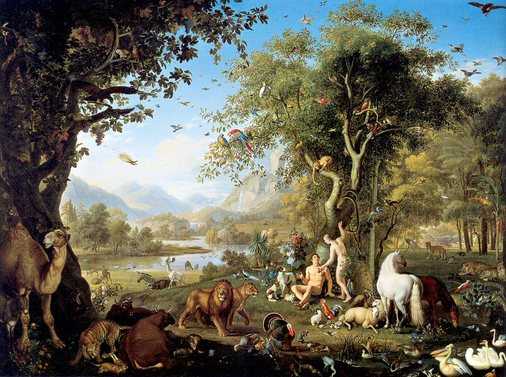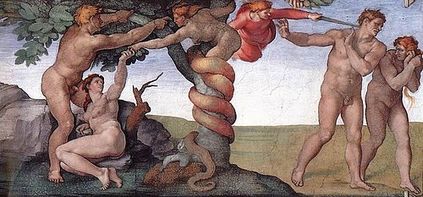The word “gospel” means “Good News”! The good news Jesus Christ brought the world was that God was offering salvation from sin. What does this mean?
This was the first, or “original” sin. Sin is acting against God’s loving will for his creatures. After this original sin, the human race lost its divine life (the one God shared with humans) and this made it virtually impossible to live according to God’s love (Romans 3:23; 1 John 1:8)
We remain God's beloved creatures, but we begin our human life outside of God's divine life. This state causes weakness of body, intellect, and will – all resulting in suffering. God did not make us for this kind of life (Romans 7); however, he does not force us to turn away from it and toward his love. Those who willfully persist in a life apart from God will spend forever apart from him after death (Matthew 25:46; 2 Thessalonians 1:9; Revelation 20:15). But what of those who wish to end the spiritual separation we are born into?
|
God the Father’s solution to this sad state was to send his divine Son, Jesus Christ, into the world as a human being just like us (only without the stain of original sin –John 1:14; Hebrews 4:15). At his incarnation, Jesus assumed a human nature in the womb of Holy Mary. Why did the Son of God unite his divinity to humanity? So that humanity could become reunited to God!
|
Salvation from sin is not just a “ticket to heaven” – it is becoming a child of God, partaking in God’s divine nature (2 Peter 1:3-4)!
Jesus ultimately made this possible through his own suffering, death, and resurrection from the dead (1 Corinthians 15:1-5). His sacrifice was of infinite value for our salvation, and we can attain it by baptism (Romans 6:3-11; 1 Peter 3:18-21). This is known as being “born again” or “born from above” (John 3:3-18).
It is by God’s grace that we are saved, through faith and for good works (Ephesians 2:8-10). After baptism, we grow in God’s grace through the process of becoming holy - more and more conformed to the image of God by becoming more and more like Jesus (Genesis 1:27; Romans 8:29; 1 John 3:2). Because of the effects of original sin, this process will involve numerous failures to be perfect. We can even choose to turn our backs on God and commit grave sins that once again cut us off from the divine life (“mortal” sins - 1 John 5:16-18 ). Because of his love, God gives us grace through the Eucharist and provides for ongoing reconciliation through the sacrament of confession (John 20:23; James 5:16; 1 John 1:6-10).
By means of the sacraments of the Church, God can restore us to his divine life from spiritual death, unites us to his body the Church, and forgive us when we fail. In this manner we can approach the life of perfection we were made for (Matthew 5:48).
Jesus ultimately made this possible through his own suffering, death, and resurrection from the dead (1 Corinthians 15:1-5). His sacrifice was of infinite value for our salvation, and we can attain it by baptism (Romans 6:3-11; 1 Peter 3:18-21). This is known as being “born again” or “born from above” (John 3:3-18).
It is by God’s grace that we are saved, through faith and for good works (Ephesians 2:8-10). After baptism, we grow in God’s grace through the process of becoming holy - more and more conformed to the image of God by becoming more and more like Jesus (Genesis 1:27; Romans 8:29; 1 John 3:2). Because of the effects of original sin, this process will involve numerous failures to be perfect. We can even choose to turn our backs on God and commit grave sins that once again cut us off from the divine life (“mortal” sins - 1 John 5:16-18 ). Because of his love, God gives us grace through the Eucharist and provides for ongoing reconciliation through the sacrament of confession (John 20:23; James 5:16; 1 John 1:6-10).
By means of the sacraments of the Church, God can restore us to his divine life from spiritual death, unites us to his body the Church, and forgive us when we fail. In this manner we can approach the life of perfection we were made for (Matthew 5:48).







